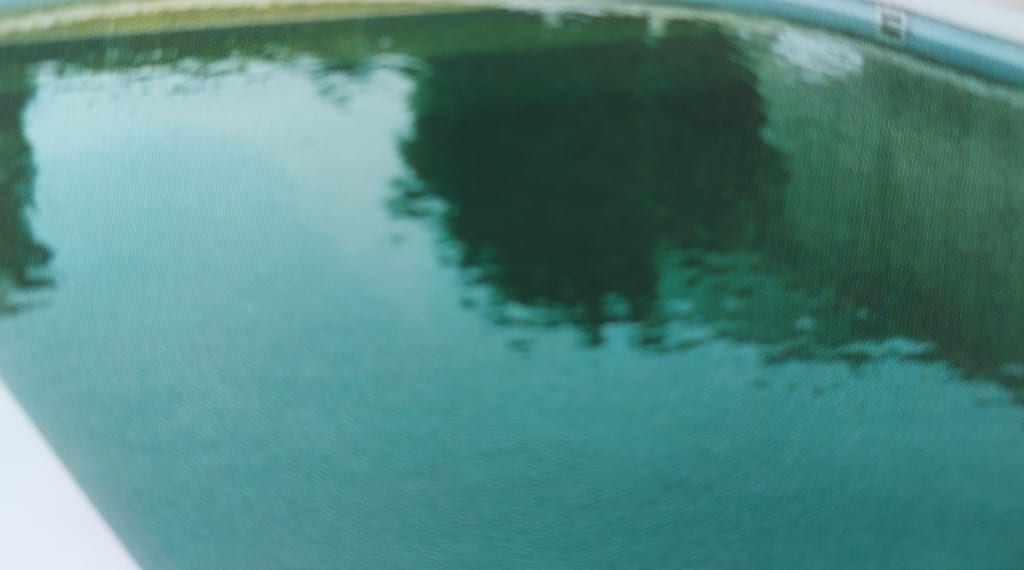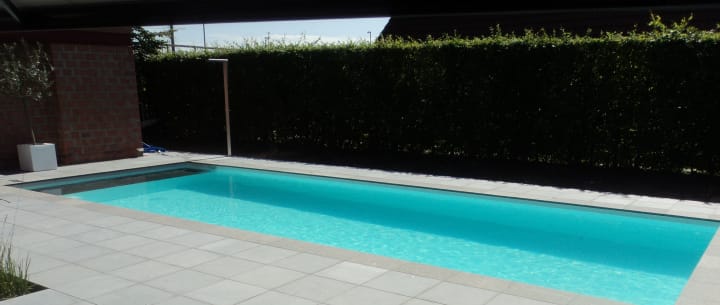Algae in swimming pool
Tips & tricks to remove algae

Algae is a common problem in swimming pools, and it can be unsightly, unsanitary, and difficult to remove. In this article, we will discuss the causes of algae in swimming pools, the different types of algae, and the best ways to prevent and remove algae from your pool.
The causes of algae in swimming pools can be numerous, but the most common ones include poor water circulation, high pH levels, high chlorine levels, and lack of proper cleaning and maintenance. Poor water circulation can lead to stagnant water, which is the perfect breeding ground for algae. High pH levels can cause the chlorine in the water to be less effective, making it easier for algae to grow. High chlorine levels can also cause the water to become cloudy and discolored. Lack of proper cleaning and maintenance can lead to a buildup of debris and organic matter, which can also provide a breeding ground for algae.
There are several different types of algae that can grow in swimming pools, including green algae, yellow algae, and black algae. Green algae are the most common type of algae found in swimming pools, and they typically appear as a green slime on the walls and floors of the pool. Yellow algae are less common and usually appear as a yellowish-brown film on the walls and floors of the pool. Black algae are the most difficult type of algae to remove, and they typically appear as dark spots on the walls and floors of the pool.
To prevent algae from growing in your pool, it is important to maintain proper water chemistry. The pH levels should be kept between 7.2 and 7.8, and the chlorine levels should be kept between 1 and 3 parts per million (ppm). It is also important to properly clean and maintain the pool, including vacuuming, skimming, and scrubbing the walls and floors of the pool. In addition, it's good to have a pool cover to prevent debris, leaves, and other organic matter from entering the pool.
If algae does develop in your pool, it is important to take action as soon as possible. The first step is to shock the pool with a high dose of chlorine, which will kill the algae and begin to break it down. The pool should then be vacuumed and scrubbed to remove as much of the algae as possible.
In some cases, a pool shock treatment may not be enough to remove the algae. In this case, you can add an algaecide to the pool, which will help to kill the algae and prevent it from growing back. Algaecides are chemical compounds that are specifically designed to kill algae. There are different types of algaecides available, such as quaternary ammonium compounds, polyquaternary compounds, and chlorine-based compounds.
If the algae problem persists, it may be necessary to drain and refill the pool. However, this should be done as a last resort, as it can be costly and time-consuming.
Another important aspect of preventing and removing algae in swimming pools is to make sure that the pool's filtration system is working properly. The filter is responsible for removing dirt, debris, and other contaminants from the water, which can help to reduce the risk of algae growth. It is important to make sure that the filter is the right size for your pool and that it is cleaned and maintained regularly.
In conclusion, algae can be a nuisance in swimming pools, but with proper maintenance, water chemistry, and cleaning, it can be prevented. If algae does develop, it is important to take action as soon as possible to remove it and prevent it from growing back. With the right approach, you can enjoy a clean and healthy pool all summer long.
CLICK HERE TO READ MORE ABOUT THIS TOPIC






Comments
Vinny 1980 is not accepting comments at the moment
Want to show your support? Send them a one-off tip.